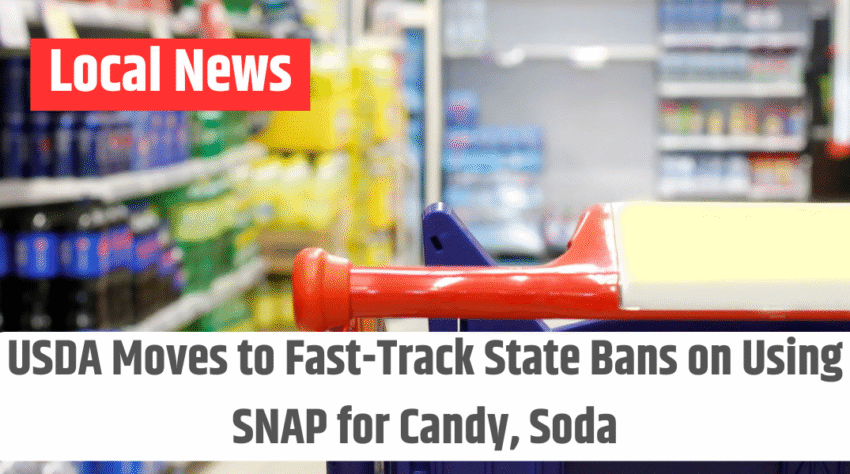The U.S. Department of Agriculture (USDA) is fast-tracking requests from various states to exclude soda and candy from the list of eligible purchases under the Supplemental Nutrition Assistance Program (SNAP), as part of efforts by the Trump administration to promote healthier eating habits across the country.
Republican-led States Push for Restrictions
On April 15, both Arkansas and Indiana submitted requests to the USDA seeking approval for changes to their state-level SNAP programs. These requests came shortly after Idaho’s governor signed a bill prohibiting the use of SNAP benefits for candy and soda purchases.
These moves align with the political direction of Republican-led states, with West Virginia and Utah also signaling their intentions to introduce similar restrictions to curb the purchase of junk food using federal food aid.
Part of the “Make America Healthy Again” Initiative
The push to limit sugary drinks and snacks from SNAP is central to the “Make America Healthy Again” initiative, led by Health Secretary Robert F. Kennedy Jr. The movement aims to encourage healthier diets for low-income families by restricting access to unhealthy food options through federal aid programs.
Also Read – NY Man Sentenced for Drug Distribution Scheme with WV Accomplice
Brooke Rollins, the USDA Secretary, has voiced her support for pilot programs that would allow states to experiment with these changes. Rollins has made it clear that the USDA under the current administration is more willing to approve such proposals than past administrations, which typically denied state requests for modifications to the SNAP program.
Opposition to the Changes
Critics of the proposed changes argue that there is little evidence to suggest that banning candy and soda from SNAP purchases would significantly improve public health. Some opponents contend that the definitions of what constitutes “candy” and “soda” are too vague, potentially leading to unintended consequences, such as the exclusion of products like granola bars or fruit juices.
Others are concerned about the logistical challenges these restrictions might pose, including the possibility of grocery stores refusing to accept SNAP benefits altogether due to the complexities of implementing these new rules.
While the debate continues, the USDA’s approach to SNAP reform signals a shift in federal food-aid policy, with the Trump administration seeking to balance efforts to combat obesity and improve health with the practical realities of running such a broad national program.
